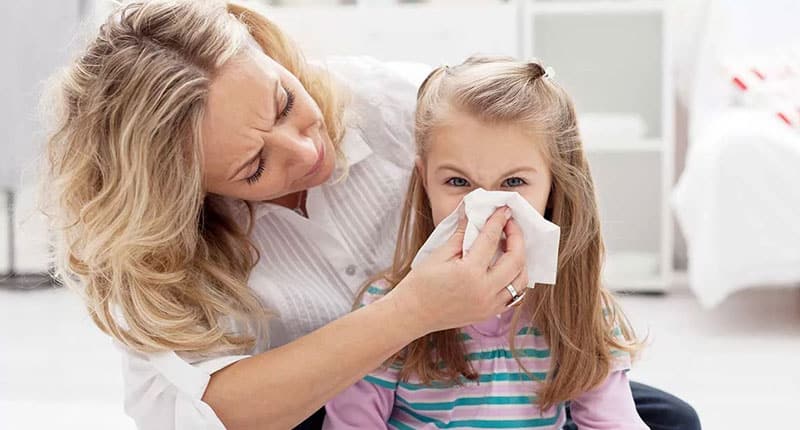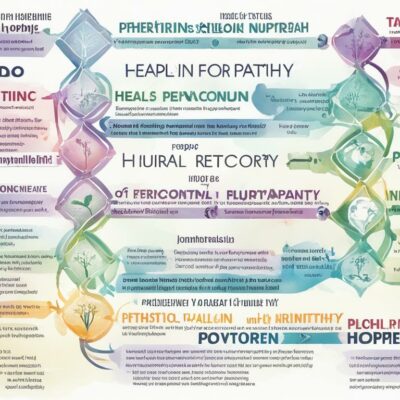
Recognizing Allergy Symptoms in Kids
When it comes to children’s health, recognizing and understanding allergy symptoms is crucial. Allergies are a common concern among kids, and they can cause discomfort and disrupt daily activities. By learning to identify allergy symptoms, parents and caregivers can take appropriate measures to alleviate their child’s discomfort and improve their overall well-being. In this article, we will discuss the different allergy symptoms that children may experience and provide insights on how to recognize them effectively.
What are allergies?
Allergies occur when the immune system reacts abnormally to substances that are usually harmless. These substances, known as allergens, can be found in various forms, such as pollen, dust mites, pet dander, certain foods, or insect stings. When a child with allergies comes into contact with an allergen, their immune system triggers a response, resulting in the release of histamines and other chemicals that cause allergy symptoms.
Common allergy symptoms in kids
Allergy symptoms can manifest in different ways, depending on the child and the type of allergen involved. It is essential to recognize these symptoms to provide timely relief. Here are some common allergy symptoms in kids:
Nasal symptoms
Allergies often lead to nasal congestion, sneezing, runny nose, and itching. These symptoms may resemble a cold, but if they persist or occur seasonally, they are more likely to be allergy-related.
Skin symptoms
Skin allergies can cause itching, redness, hives, or rashes. Eczema, a chronic condition characterized by dry and inflamed skin, can also be triggered by allergens.
Respiratory symptoms
Wheezing, coughing, shortness of breath, and tightness in the chest are respiratory symptoms that may indicate allergies. These symptoms are more commonly associated with asthma triggered by allergens.
Digestive symptoms
Food allergies can cause digestive issues such as nausea, vomiting, diarrhea, and stomach pain. These symptoms typically occur shortly after consuming the allergenic food.
Allergy triggers for kids
Understanding common allergy triggers can help parents and caregivers prevent exposure and minimize the occurrence of allergy symptoms. Some common allergens include pollen, mold spores, dust mites, pet dander, certain foods like peanuts, milk, or eggs, and insect venom.
How to recognize allergy symptoms in kids
Recognizing allergy symptoms in kids requires careful observation and understanding. Here are some ways to effectively identify these symptoms:
Observation and communication
Pay attention to any changes in your child’s behavior or physical appearance. Ask open-ended questions about how they are feeling and if they have experienced any discomfort or unusual reactions after exposure to specific environments or substances.
Medical examination
Consulting a healthcare professional is crucial for accurate diagnosis. A thorough examination of your child’s symptoms, medical history, and potential triggers can help in recognizing and confirming allergies.
Allergy testing
In some cases, allergy testing may be recommended by a healthcare professional. Skin prick tests or blood tests can identify specific allergens that trigger your child’s allergic reactions. This information can guide treatment and preventive measures.
Tips for managing allergies in kids
Managing allergies in kids involves a multi-faceted approach. Here are some tips to help alleviate allergy symptoms and improve your child’s well-being:
- Create an allergen-free environment at home by minimizing exposure to common triggers like dust mites, pet dander, and mold.
- Ensure proper ventilation in your home to reduce the concentration of allergens in the air.
- Teach your child good hygiene practices, such as regular handwashing and avoiding rubbing their eyes or nose.
- Work closely with your child’s school or daycare to implement allergy management strategies, such as avoiding specific foods or ensuring a clean environment.
- Consider allergy medications or immunotherapy (allergy shots) under the guidance of a healthcare professional.
When to consult a doctor
While mild allergy symptoms can often be managed at home, certain situations warrant a visit to the doctor. Seek medical attention if:
- The symptoms significantly impact your child’s daily activities or quality of life.
- The symptoms persist or worsen despite home remedies or over-the-counter medications.
- There are signs of a severe allergic reaction, such as difficulty breathing, swelling of the face or throat, or dizziness.
Conclusion
Recognizing allergy symptoms in kids is essential for their overall health and well-being. By understanding the common symptoms, identifying triggers, and seeking appropriate medical guidance, parents and caregivers can effectively manage allergies and help their children lead a healthy and comfortable life.
FAQs
- Can allergies develop at any age in children? Yes, allergies can develop at any age, including during childhood.
- Are allergies hereditary? There is a genetic component to allergies, so children with a family history of allergies are more likely to develop them.
- Can allergies be outgrown? While some allergies may resolve or lessen over time, others can persist into adulthood. It varies from person to person and depends on the allergen.
- Can allergies be prevented in children? While allergies cannot be entirely prevented, certain measures like breastfeeding, reducing exposure to allergens, and avoiding triggers can help minimize their impact.
- What are the treatment options for children with allergies? Treatment options may include medications to manage symptoms, allergen avoidance strategies, and in some cases, immunotherapy (allergy shots) to desensitize the immune system.











